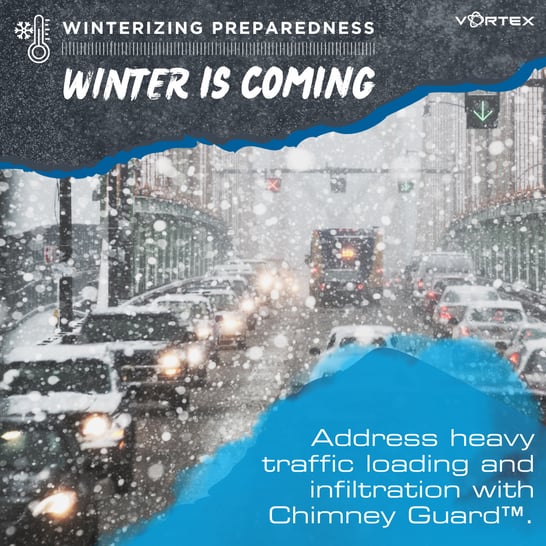 Manholes can be a breeding ground for freeze/thaw damage. As temperatures continue to drop this winter, the likelihood of freezes spikes and your manholes need to be prepared properly to avoid further deterioration or all-out collapse.
Manholes can be a breeding ground for freeze/thaw damage. As temperatures continue to drop this winter, the likelihood of freezes spikes and your manholes need to be prepared properly to avoid further deterioration or all-out collapse.
Freeze/thaw damages occur when water enters cracks or voids in your infrastructure and freezes, causing an expansion. This expansion can be devasting for your concrete or brick assets. The more defects your asset contains (cracks, voids, gaps, etc.), the higher the chance you will suffer damage this winter.
Get out in front and prepare your manholes now!
SET A COURSE OF ACTION
You’ll first want to inspect your manholes. Find any surface area defects that could lead to further damage if left untreated. Be sure to point these defects out! Water entering any of these defects (cracks, voids, or gaps) and freezing will quickly deteriorate your asset.
Next, you’ll want to create a course of action to follow. After discovering the defects, plan how you treat your manhole. Remember, this is not only for the betterment of the manhole during the winter, but also to save you the hassle and cost of repairs or replacements come springtime.
Once you finally decide on how to prepare your manhole, you will want the best product to do so: Chimney Guard®.
To counter freeze/thaw cycles, Chimney Guard helps seal the uppermost part of your asset and protect it from complete devastation. Chimney Guard®, is designed to seal the chimney section of the manhole and protect the surfaces from extreme freeze/thaw cycles or heavy traffic loading while withstanding up to 300% elongation. Chimney Guard is your best bet to prevent freeze/thaw damage and protect you from breaking your budget in repairs and replacements.
Want to know more about how Chimney Guard can be put to work for you and your manholes? Talk to one of our technical experts to find out more about our products and preventative measures, and to make sure your critical infrastructure is ready for the upcoming winter weather. Schedule an assessment.
For additional steps on how to properly prepare all of your infrastructure for the serious weather conditions brought on by the winter months, check out our “Prep For Winter” blog: here.











